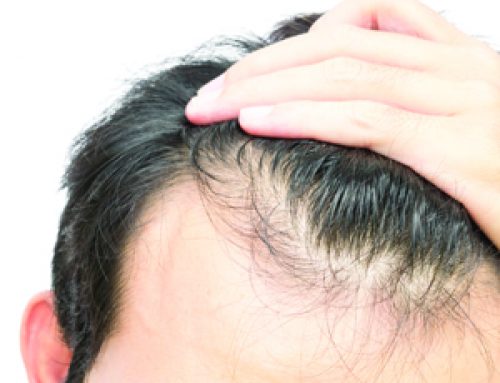Hormones and Male Incontinence
 While the majority of people dealing with urinary incontinence are women, men also suffer from it in significant numbers, steadily increasing with age. And men are typically more concerned and embarrassed about it.
While the majority of people dealing with urinary incontinence are women, men also suffer from it in significant numbers, steadily increasing with age. And men are typically more concerned and embarrassed about it.
Incontinence is defined simply as the unintended loss of urine, and it can be caused by many factors. It can result from smoking, obesity, constipation, urinary tract infections, or intestinal irritants such as caffeine or gluten in those who are sensitive to it. Incontinence can also occur during physical stress, such as when sneezing, coughing, laughing, or exercising.
Unique to men is another cause of incontinence—an enlarged prostate. Because of the location of the prostate gland, any enlargement can interfere with the urinary tract and urine flow. And, while there are drug options for treating an enlarged prostate, the prostate gland is also very sensitive to the effects of hormones, some of which may also be contributing to the enlarged prostate.
As men age, testosterone levels decline and estrogen levels steadily rise. Coupled with this shift in hormone balance that accompanies aging is the ever-increasing exposure to estrogen-like chemicals prevalent in our environment. Estrogen, in both men and women, stimulates tissue growth, which can also contribute to an enlarged prostate.
If incontinence is due to an enlarged prostate gland, evaluating and treating abnormal levels of estrogens, testosterone, and dihydrotestosterone is a good starting point—and the sooner the better. There are many natural and pharmaceutical treatments for making sure that estrogens metabolize properly and do not accumulate. Declining testosterone levels can be supplemented to increase the strength of the bladder and urinary tract. Curtailing the effects of this hormone imbalance can help forestall urinary incontinence due to further enlargement of the prostate gland.
If an enlarged prostate progresses too far, surgery to remove some of the tissue may be offered. However, urinary incontinence is still frequent post-surgery as well. And, when this occurs, nerve damage may now contribute to the problem, making solutions even more problematic.
Urinary incontinence can be the trigger that leads to an avalanche of health issues. When an individual (or their family or caregivers) can no longer cope with the level of care required to deal with incontinence, they often turn to nursing homes or other long-term care facilities. Because of the frequent use of catheters, patients tend to have a high incidence of chronic urinary tract infections, which become more and more resistant to treatment. In addition, the side effects of many of the drug treatments include memory problems and dizziness, contributing to more falls and broken bones. A long, slow, steady and heartbreaking decline in quality of life and health continues.
Let’s face it—the path we are now on isn’t working well. We must address urinary incontinence early, by working with a healthcare practitioner who can identify and help solve hormone imbalances that may be part of the problem. And let’s not write off those who are already in nursing homes. Advocate for them to make sure that they are well-nourished and their hormone imbalances addressed.




